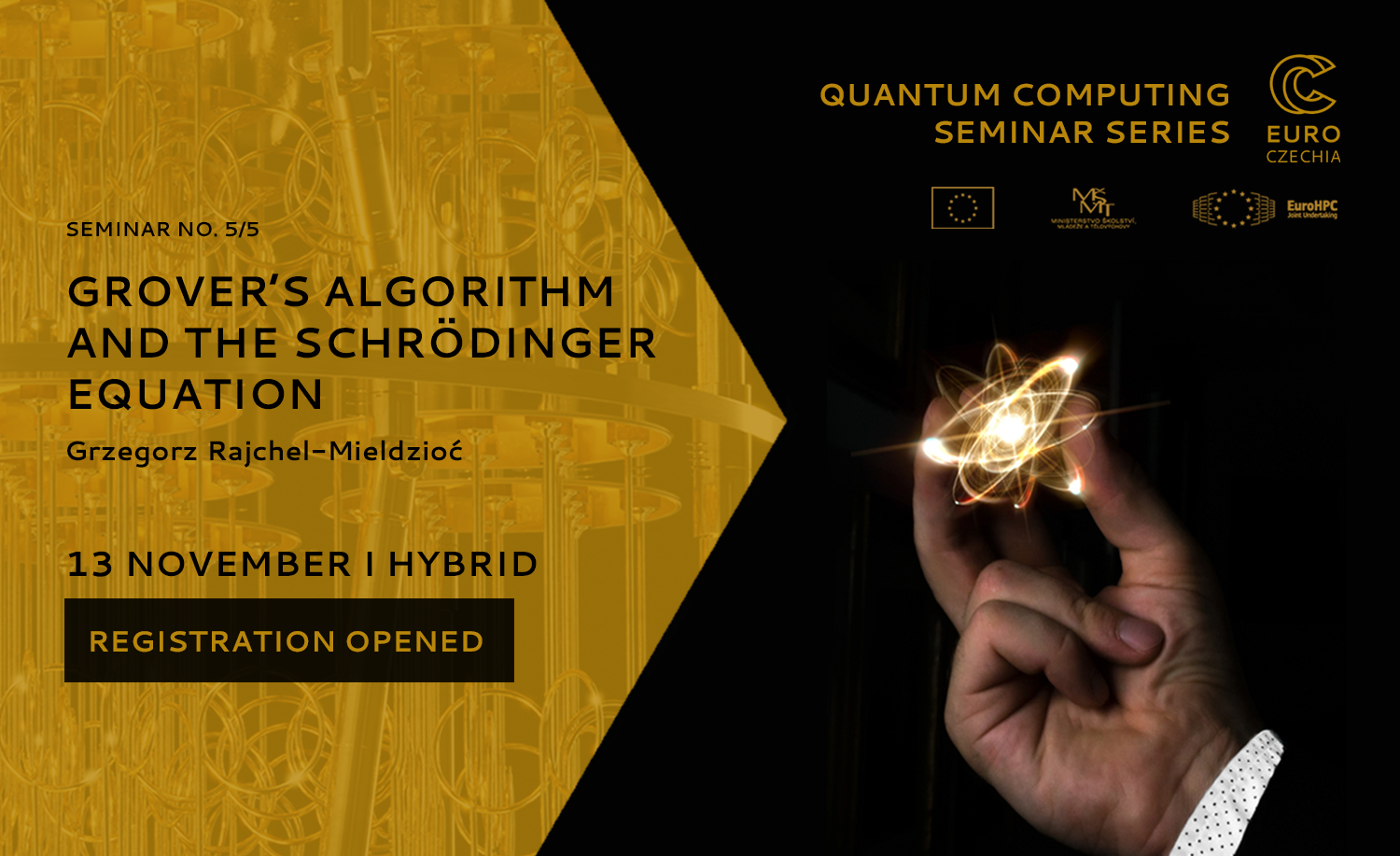
Annotation
Accurately computing multiple eigenvalues of quantum Hamiltonians is crucial in quantum chemistry, materials science, and molecular spectroscopy. Excited-state estimation is particularly hard for classical methods due to exponential scaling. This seminar presents a quantum algorithm for estimating eigenvalues and singular values of parameterised matrix families, covering generalised eigenvalue problems common in quantum simulations. The method combines amplitude amplification (related to Grover’s algorithm) with phase estimation and identifies eigenvalues via minima in the singular-value spectrum.
A quantum formulation of the pseudospectral collocation method for the Schrödinger equation will be outlined. Resource estimates in the fault-tolerant regime indicate favourable scaling in problem size N (up to Õ(√N)) for certain well-behaved potentials, compared to classical O(N^2). Unlike standard collocation, which yields a generalised eigenvalue problem and requires unstable matrix inversion, the proposed approach scans a parameterised matrix family and detects eigenvalues through singular-value minimisation. This is especially effective when many eigenvalues are needed or when the generalised problem is ill-conditioned, making the method promising for high-dimensional molecular systems with dense spectra.
Related preprint: https://arxiv.org/abs/2506.13534
Benefits for the attendees, what they will learn:
An introduction to core quantum algorithms will be provided, with emphasis on quantum phase estimation and amplitude amplification. The combination of these techniques for problems related to the Schrödinger equation will then be explained in greater detail. The first part will be accessible to a broad audience, while the second part will be aimed at an intermediate level.
Level
Beginner - intermediate
Language
English
Prerequisites
Basics knowledge of quantum mechanics
Tutor
Grzegorz Rajchel-Mieldzioć is a physicist specialising in quantum information, in particular, entanglement and quantum channels. He started the journey with this branch of physics, doing Bachelor's and Master's under the supervision of Andrzej Dragan at the University of Warsaw, studying properties of quantum protocols in the vicinity of black holes. Then, he moved on to a more applied branch of quantum science while doing a PhD at the Centre for Theoretical PAS, guided by Karol Życzkowski. During his PhD, he solved several problems related to multipartite quantum entanglement and quantum designs. One of those solutions, dubbed as entangled officers of Euler, was awarded a golden prize by the National Quantum Information Centre, associated with the University of Gdańsk. Subsequently, the entire thesis was also recognised as the best PhD thesis in quantum information, defended in Poland in 2021/22, and awarded by the same institution. After the defence, he moved on to ICFO in Barcelona, joining the Quantum Optics Theory group of Maciej Lewenstein. He spent two years there, responsible for the branch of the group devoted to advancing the research on experimentally motivated quantum technologies. On coming back to Poland, he joined the newly created Quantum Computing group at NASK PIB. In October 2024, he became part of BEIT and is exploring topics at the cross-section of quantum algorithms in chemistry and quantum information. In total, he published 22 research papers.
Organiser
The seminar is organised by NCC Czechia.